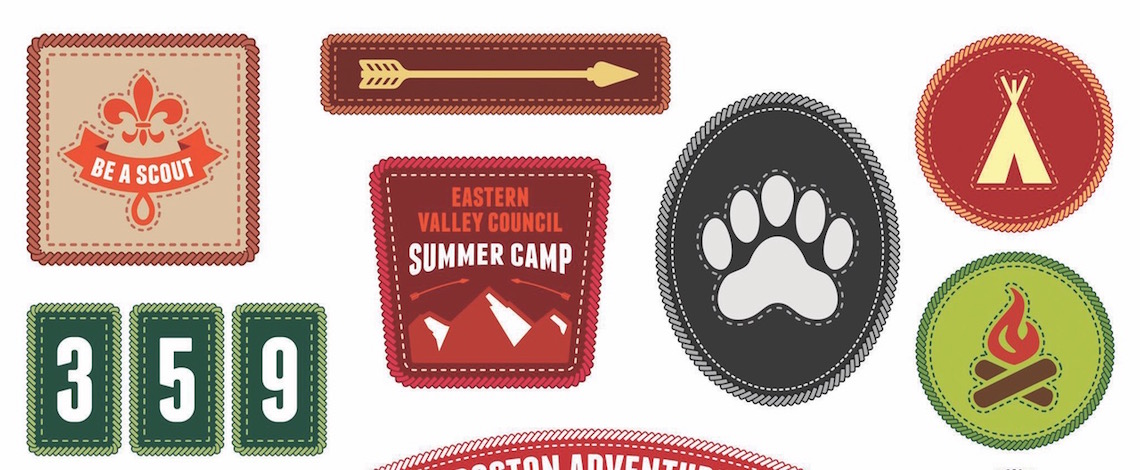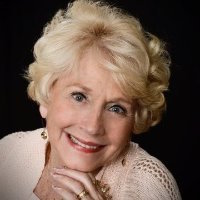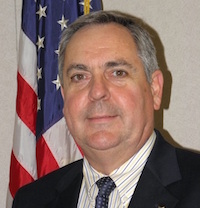
Merit badges commonly given out through the Boy Scouts of America program will be available for girls to earn starting next year when they are accepted into the program.
Written by
With the recent announcement that girls will be allowed to participate in the Boy Scouts and Cub Scouts, Boy Scouts of America and Girl Scouts of the USA’s offices in the Central Valley are preparing for the shift.
Cathy Ferguson, CEO of Girl Scouts of Central California South, said that only 4 percent of available boys and girls are in their respective scout groups in the Central Valley. Despite this, Ferguson said the Girl Scouts are growing. They are currently at 11,100 members, an increase of 125 girls.

“Our council had an uptick in girl membership this last year. And that was against pretty bad odds because we were changing over to a whole new system,” Ferguson said. “So our membership had to learn a new computer system that takes time, staff had to learn first.”
The Boy Scouts of America announced earlier this month that girls would be allowed to join the Cub Scouts next year as part of a phased transition, with the issue of older girls joining the girl scouts being tackled in 2019. This is not the first time that Boy Scouts have offered co-ed programs — Exploring and Adventuring programs for boys and girls were established in 1971 and 1998, respectively.

John Richers, CEO of the 7,200-member Boy Scouts of America Sequoia Council, said that the decision came largely from within their organization’s community, as families wanted their daughters to join as well.
“And in fact, many girls had been attending Cub Scouts meetings and building pinewood derby cars and all the rest,” Richers said. “So in an effort to sort of reach out to the whole family and today’s busy millennials, we’ve decided to try this as a way — in the middle of 2018.”
Richers explained that this will be enacted on a voluntary basis and that troops that are currently all male and wish to remain so will have that option.
In regards to the changes, Ferguson remains confident in the Girl Scouts program and its future in the Valley. Female mentorship, she said, is an important part of life for any girl.
“Girl Scouts offers a girl-only program for a primary purpose. One, the kids have opportunities to be with the other sex all day long in school,” Ferguson said. “But we know from our research, and the research that is out there, that a girls’ space where they feel comfortable in failing, where they feel comfortable in asking questions, where they feel comfortable in trying new things without feeling embarrassed, is a really important part of their development.”
Ferguson, who brought home two gold medals as a swimmer in the 1964 Olympic Games in Tokyo, credits her time as a Campfire Girl (a separate organization) as a molding factor in her life and a contributor to her success.
“Then I began to grow as a person. I began to question myself about what I wanted to be when I grew up. I questioned myself as to who was important in my life,” Ferguson said. “Making decisions was hard for me until I really got a grasp, and I was with women who could help to direct me down the path to figure out what it was I wanted to do.”
Regardless of the new arrangements, both Ferguson and Richers said that they both want what is best for their organizations, and will work together for a mutual benefit. Richers, who had two daughters in the program, was himself a Girl Scouts leader. Their working together, they stated, is an exception in the scouting programs, rather than a norm.
“Over the last nine years, we’ve been collaborating here in the Valley,” Richers said. “And it’s been beneficial because when we go to challenging neighborhoods or rural communities, where there’s not a lot of scouting, it just makes sense to go in together. And we’ve had some success in doing that.”
Richers attributed, in part, a lack of familiarity to scouting in communities with a reason for low membership. Their uniforms, for example, can be seen as intimidating.
“I have a woman who works for us as a professional in Madera County, and she grew up in Mendota. I said: ‘Before you came to us, what did you know about scouting?’ Richers said. “She said: ‘I thought it was a military organization.’”
Richers said that this woman now talks to mothers in Spanish who had the same assumptions she used to have. As to the future, Ferguson and Richers are both interested to move along with any changes in the operations of their respective organizations.
“I think the test will be in time to determine really what kind of things happen,” Ferguson said.








